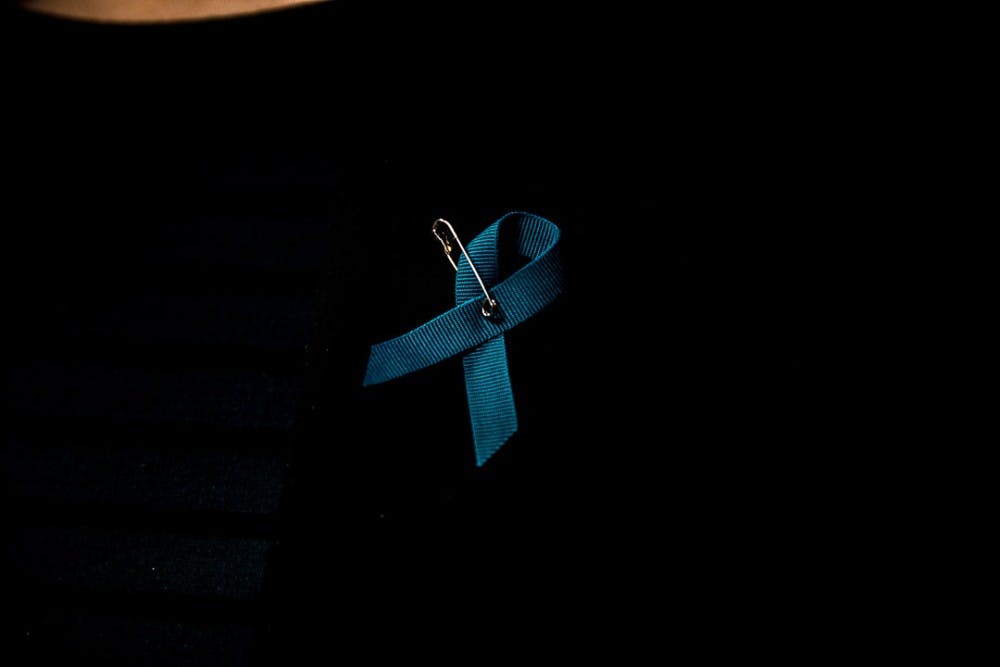On Thursday, Nov. 12, Michigan State University opened up its first-ever sexual assault health care program for MSU students, staff, faculty, and anyone in the tri-county area and Clinton county.
MSU’s sexual assault health care program provides the option for survivors of sexual assault to receive treatment. The Center for Survivors designed the program for people who have been sexually assaulted within the last 5 days, have access to medical examinations, medical treatment and post-assault care without going through a hospital system.
Tana Fedewa, Center for Survivors at MSU Director, said that college students that the Center for Survivors has been serving have many barriers when going to an emergency room in terms of financial ramifications of an emergency room visit, unsure of wanting the police to be contacted yet or not wanting their parents to find out through billed insurance.
The Center for Survivors has been working with community partners to explore options and best practices for survivor-based treatment.
“We saw a different model that could be really truly survivor-centered, and it could move at a pace based on what the survivor needs, what they’re ready for, and really focus on one patient at a time, and in the emergency room that’s just not possible, there are competing priorities,” Fedewa said.
Patients will have the option to receive treatments such as physicals, prophylactic treatment for STIs, information for resources to receive mental and psychological help, and more. The program design is to be as comprehensive as possible and patient-led.
“The patient gets to make the decision in terms of what they want to do as a part of their visit, meaning that they can opt to not have an exam, they can opt to just have a conversation, they can opt to have a full exam with a collection of specimens that some people traditionally call a sexual assault kit,” Sameerah Shareef CNM, MSN, Sexual Assault Health Care Program Director said. “We’re doing patient-driven, trauma-informed care.”
Shareef’s role in MSU’s sexual assault health care program as the medical director is to make sure there is a staffed program 24/7 and that the resources needed for trauma-informed medical care are available.
Patients also have the option to connect with law enforcement and pursue that avenue as well. “If they [patients] choose, we can collect evidence and do a sexual assault kit,” said Danielle Fenton, nurse examiner for MSU’s sexual assault health care program. “We can either store that for them for the length of 10 years in case they choose to report this to police later on, or we can actually collect the kit and turn it over to the police if that is what their choice is.”
Patients can also have photographs taken of injuries, and those can be confidential unless a court order is issued, or the patient asks for them to be released.
Fedewa said that MSU’s Center for Survivors wanted to expand and provide all of the types of resources that a survivor might need in one place.
“We’re helping survivors navigate complicated systems like the Title IX process with OIE, or the court criminal justice process, and then also the medical system and dealing with doctors and insurance companies, and nurses,” said Fedewa. “We’ve been trying to figure out how we can have a holistic model that helps mitigate some of that complication or simplifies it and brings it to our space so that it’s a more trauma-informed space?”
The program also offers a care coordinator who supervises the medical advocates. The care coordinator is a social worker who provides follow-ups and connects to either the Center for Survivors services which, can be therapy and advocacy, support groups, yoga, or if the person is, for example, from another campus and sexually assaulted, then the care coordinator would help them get connected to the health support in their community. However, the advocates could also work with them if they traveled to MSU to navigate the Title IX system or law enforcement.
Patients must be 18 years or older. MSU students who are 16 or 17 years old are also welcome, however, there are no pediatric sexual assault exams.
MSU’s Center for Survivors received funding from the Victims of Crimes Act Fund to pay for the program’s staff and equipment.
“We are just very excited and happy to be able to offer this service to MSU and the tri-county area, and we are looking forward to serving patients as they come here,” Shareef said. “We’re very excited and honored to be able to do this.”
For more information, visit https://centerforsurvivors.msu.edu.
The Center for Survivors’ phone number to schedule an appointment with a Counselor or Advocate is (517) 355-3551. 24-hour Sexual Assault Crisis hotline is (517) 371-6666.
Support student media!
Please consider donating to The State News and help fund the future of journalism.
Discussion
Share and discuss “MSU opens 1st-ever sexual assault health care program” on social media.







